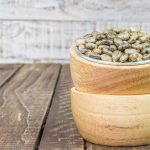Expectations of Pain Can Ensure a Painful Experience
Node Smith, ND
A recent study looks at the experience of pain as a self-fulfilling prophecy and that expecting more pain may result in the experience of more pain.1 The reinforcement and perpetuation of pain pathways has been a dominant interest in research of chronic pain, an attempt to understand why some individuals experience pain from relatively benign stimuli, or experience pain long after an injury has healed. This research, published in the journal Nature Human Behaviour, demonstrates that expectation of pain can influence the intensity of pain/stimuli, and that these expectations can persist even after reality repeatedly contradicts previous expectations.
Discovered: positive feedback loop between expectation and pain
“We discovered that there is a positive feedback loop between expectation and pain,” said senior author Tor Wager, a professor of psychology and neuroscience at the University of Colorado Boulder. “The more pain you expect, the stronger your brain responds to the pain. The stronger your brain responds to the pain, the more you expect.”
Reason behind launching study
The study was launched after a researcher, Marieke Jepma, a postdoctoral researcher in Wager’s lab at the time, noticed test subjects continued to expect something would hurt badly even after repeatedly being shown stimuli to be relatively non-painful.”We wanted to get a better understanding of why pain expectations are so resistant to change,” said Jepma, lead author and now a researcher at the University of Amsterdam.
First study to specifically model feedback dynamics between expectations and pain involving neuro-mechanics
This is the first study to specifically model the feedback dynamics between expectations and pain, and the neuro-mechanics involved. Functional magnetic resonance imaging (fMRI) was used to measure blood flow in certain brain regions during the research study.
The study included 34 individuals
They were trained to associate one symbol with low heat and another with high, painful heat. The participants were then put in an fMRI machine, and for 60 minutes were shown various symbols meant to act as low or high pain cues – the symbols they had been trained with, but also the words Low or High, and the letters L and W. They were then asked to rate how much pain they expected to feel. Varying degrees of painful – but non-damaging – heat was applied to their extremities. The hottest stimuli was about the same as holding a hot cup of tea. They then rated their experience of pain.
Unknown to the participants, the heat intensity had nothing at all to do with the cue preceding it.
Study revealed the following
The study saw that participants who expected more heat displayed brain regions associated with fear and threat became more activated. Likewise, areas of the brain associated with pain generation were also more active when the stimuli was received. Individuals rated pain connected with high-pain cues as more painful regardless of how much heat was delivered.
“This suggests that expectations had a rather deep effect, influencing how the brain processes pain,” said Jepma.
Expectations strongly influenced the ability to learn from experience
More interestingly, the expectations had a strong influence on the ability to learn from experience. Many participants showed a “confirmation bias,” or a tendency to reinforce only the experiences that they expected, and discount the experiences that contradicted their expectations. For example, if they expected a high pain stimuli and actually received it, they would expect even more the following time, however if they didn’t get high pain stimuli after expecting it, nothing changed. “You would assume that if you expected high pain and got very little you would know better the next time. But interestingly, they failed to learn,” said Wager.
‘Negative expectations about pain or treatment outcomes may interfere with optimal recovery’
“Our results suggest that negative expectations about pain or treatment outcomes may in some situations interfere with optimal recovery, both by enhancing perceived pain and by preventing people from noticing that they are getting better,” Jempa said. “Positive expectations, on the other hand, could have the opposite effects.”
Research may help reframe experiences
This research may help reframe experiences, or possible experiences associated with pain for individuals, helping them recover from chronic pain conditions.
‘Realizing things may not be as bad as you think may help revise expectation and alter experience’
“Just realizing that things may not be as bad as you think may help you to revise your expectation and, in doing so, alter your experience,” said Jepma.
 Node Smith, ND, is a naturopathic physician in Portland, OR and associate editor for NDNR. He has been instrumental in maintaining a firm connection to the philosophy and heritage of naturopathic medicine among the next generation of docs. He helped found the first multi-generational experiential retreat, which brings elders, alumni, and students together for a weekend camp-out where naturopathic medicine and medical philosophy are experienced in nature. Four years ago he helped found the non-profit, Association for Naturopathic ReVitalization (ANR), for which he serves as the board chairman. ANR has a mission to inspire health practitioners to embody the naturopathic principles through experiential education. Node also has a firm belief that the next era of naturopathic medicine will see a resurgence of in-patient facilities which use fasting, earthing, hydrotherapy and homeopathy to bring people back from chronic diseases of modern living; he is involved in numerous conversations and projects to bring about this vision.
Node Smith, ND, is a naturopathic physician in Portland, OR and associate editor for NDNR. He has been instrumental in maintaining a firm connection to the philosophy and heritage of naturopathic medicine among the next generation of docs. He helped found the first multi-generational experiential retreat, which brings elders, alumni, and students together for a weekend camp-out where naturopathic medicine and medical philosophy are experienced in nature. Four years ago he helped found the non-profit, Association for Naturopathic ReVitalization (ANR), for which he serves as the board chairman. ANR has a mission to inspire health practitioners to embody the naturopathic principles through experiential education. Node also has a firm belief that the next era of naturopathic medicine will see a resurgence of in-patient facilities which use fasting, earthing, hydrotherapy and homeopathy to bring people back from chronic diseases of modern living; he is involved in numerous conversations and projects to bring about this vision.









